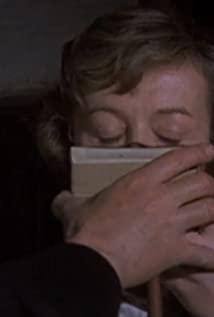The reason why I talked about the translation is that the English film title "Phantom Thread" can reflect the theme of the film in a true sense to a certain extent. Because although it seems that this film may be the most easy-to-understand work in the career of director Paul Thomas Anderson (hereinafter referred to as PTA), he has given up the cumbersome narrative clues he is good at (such as "Boogie Night", "Magnolia" , "Nature is Evil"), but also put aside the discussion of the ultimate destination of obscure and forbearance in the middle and late works (such as "Master", "The Blood Is Coming"), and even the anti-type segments in the small pattern works are abandoned (such as " "Casino Aspect", "Love Disorder"), but watching the full movie, "Phantom Thread" is actually still a typical PTA movie.
An interesting reality is that "Phantom Thread" is very similar to a variant of "The Master": the believers (subordinates, servants) who were discovered accidentally began to use their strong side to subvert the original characters in the process of self-awakening. It’s just that Freddy’s awakening in "The Master" is more thorough, but in "Phantom Thread", Alma gradually fell in love with the feeling of controlling others, or in this film, Woodcock and Alma Together they discovered a new possibility of their own life, and this new possibility finally proved to be achieved only by relying on each other.
Therefore, "Thread" may refer to the kind of delicate connection that intertwines the lives of the two, while "Phantom" is a proof of the theme of the "curse" and "ghost" that are constantly being strengthened in the film. After Woodcock was poisoned for the first time, he took the lead in seeing his mother's phantom, and for the first time he revealed the source of his fragility and hesitation. According to the previous narrative, this source gave him endless creative desires, but it also often caused him to fall into distress. When the powerful Alma began to control Woodcock through his own wrist, his mother's "Phantom" has never been since then. Withdraw from the story, in other words, Alma has become Woodcock's new "Phantom". On New Year's Eve, Woodcock discovered this transformation. He was surprised, upset, angry, but powerless, but at the end of the film, Woodcock finally accepted it indifferently.
From this perspective, "Phantom Thread" does give the audience a closed ending. In PTA's previous works, he used to leave the problem to the audience, just like we are not sure about Freddy in "The Master". Whether he is cured, whether the people who use God in "The Blood Is Coming" will eventually be forgiven. Here, Alma’s "Declaration of Victory" at the end of the movie resembles Wahlberg’s self-motivation at the end of "Booggie Nights", and from "Boogey Nights" to "Phantom Thread", PTA seems to have finally given up For the paranoid pursuit of the ultimate truth, I am used to completing a single-line story with a closed theme in the context of a stable craftsman.
The most direct manifestation of this in the movie is that everything in "Phantom Thread" is handled in a traditional, proper, and low-key manner. The ambitious narrations in "Magnolia" and "The Evil of Nature" and the passionate and heroic performances in "The Master" and "Blood is Coming" have been discarded. The two protagonists who are heavily involved in the drama try their best to let their performance be absorbed by the overall photographic effect, and Gein's Oscar-style edgy one-man performance is not what this film needs. After all, more often than not, the excellence of "Phantom Thread" lies in the performance of the atmosphere. Woodcock's arrogance and fragility, Alma's excitement when he was tapped, and self-confidence after taking control of the overall situation are all displayed well, but PTA has no intention of The character’s motives and endings are evaluated. He is more concerned about how this show is better accepted by the audience. Compared with the straightforward expressions in the period of "The Magnolia" and the secretiveness in "The Evil of Nature", this is actually a person. The director's mature and confident performance.
Because after controlling the superior resources, mature directors will try to allocate resources to the best, rather than unrestrained display. In "The Evil of Nature", perhaps out of worship for the original author Thomas Pynchon, PTA is in In some scenes, the overemphasis on the fit between the plot and the original text made the movie seem a bit sloppy. Perhaps in the eyes of some movie fans, this kind of "stylized" looseness is another advantage of PTA, but in "Phantom Thread", this slightly excessive performance has been completely abandoned, and PTA has not arbitrarily thrown out to the audience. For any question or conclusion, there is no attempt to remind the audience of the theme of the movie with a large amount of informative plot. Therefore, the romance and shock of the movie are naturally generated when the time comes. Therefore, the "non-obscure" of the film is largely derived from the PTA's confident and steady control of the film language, because when the emotions are effectively conveyed, then Strict audiences will not care whether there is the so-called inherent logic behind this empathy. On the contrary, this excessive reliance on "motivation credibility" and "story causal logic" is precisely the source of the uniformity of most Hollywood commercial films. From this perspective, "Phantom Thread" may be one of PTA's most successful directing techniques so far, along with "The Master" and "Blood is Coming".
Although for movie fans who love "Boogie Nights", "Magnolia", and "The Evil of Nature", "Phantom Thread" may be a slightly ingenious movie. I did not question the arrogance of heaven and earth, but the advantages of this film are precisely derived from this. In such a film about intimacy, PTA, as a screenwriter and director, may have dedicated his career to the audience. One of the most personal movies in the movie: Woodcock bravely swallowed the poison. At this moment, his fearlessness and cowardice were miraculously glued together by Lewis in the calmness, and Vicki Cripps was like Like the characters in the movie, the appearance of a country girl who skillfully makes the characters fade away, the powerful performance of the characters is glamorous and very persuasive, which can be called the finishing touch of the film. In addition, the violent personality conflict and dramatic tension can only be slightly overflowed in the seemingly inadvertent details of the characters. The smooth camera perspective and editing work hard to reduce all the overwhelming expressions. The narration of Alma's fusion in the dark yellow candle light confidently hides I am as powerful and ecstatic as a winner, just like PTA standing behind the camera, carefully practicing my own gusts of wind and rain, pressing the deadly romance into the rhythm of grace and luxury.
View more about Phantom Thread reviews











